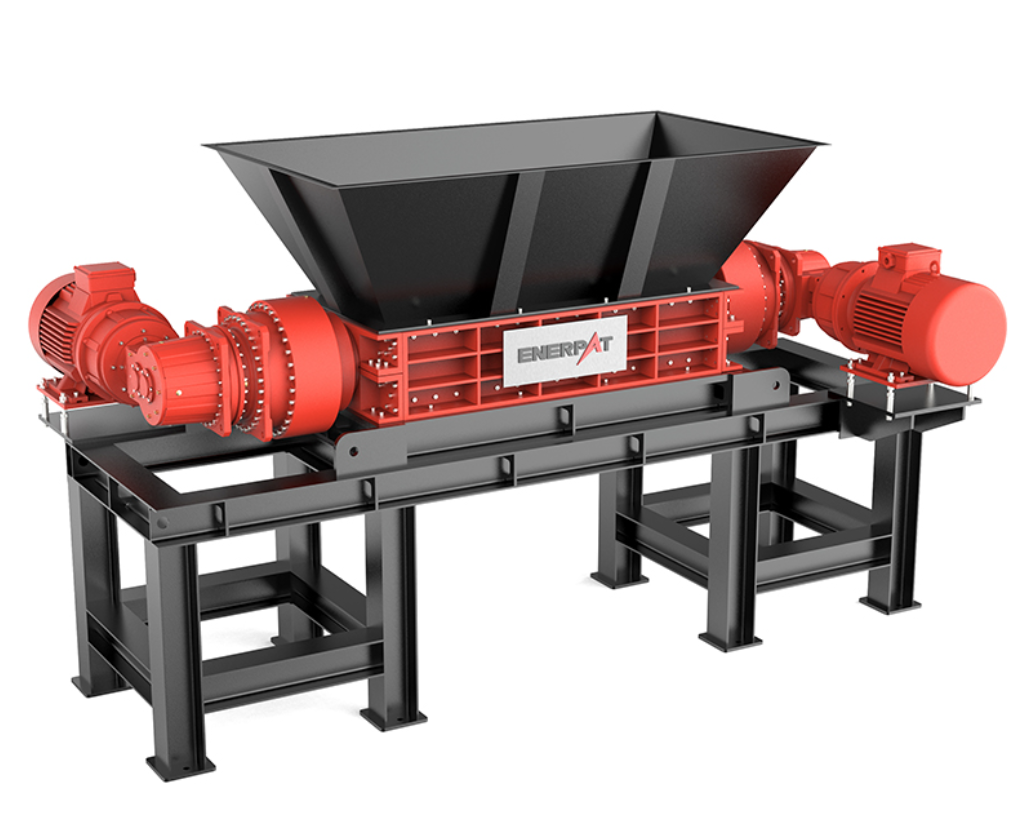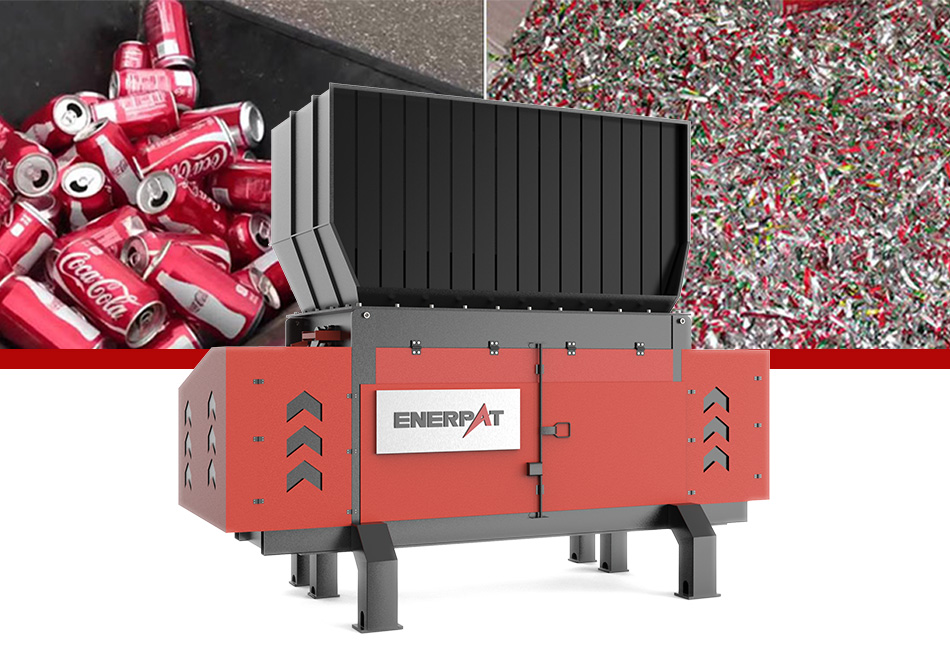+1(909)-996-3687
Metal Shredder
- All
- Product Name
- Product Keyword
- Product Model
- Product Summary
- Product Description
- Multi Field Search
Views: 0 Author: Site Editor Publish Time: 2025-06-20 Origin: Site









Heavy-duty shredders are crucial for businesses managing large volumes of waste. Choosing the right shredder can impact efficiency and security.
Commercial and industrial shredders differ in size, power, and material handling. In this post, we'll explore these key differences, helping you choose the right shredder for your needs.
Heavy-duty shredders are powerful machines designed to handle large amounts of materials, making them essential in industries like manufacturing, recycling, and offices. These shredders are used to break down tough materials, such as paper, plastics, and metals, into smaller, more manageable pieces for easier disposal. In offices, they're commonly used for shredding sensitive documents, while in manufacturing and recycling, they handle production waste and recyclable materials. Heavy-duty shredders are crucial because they can process large volumes quickly, ensuring efficient and secure disposal for businesses that deal with high quantities of waste regularly.

A commercial heavy-duty shredder is designed for businesses with moderate shredding needs, typically found in mid-sized offices or operations. These shredders are built to handle everyday tasks, such as shredding documents, paper, or cards. They are usually compact, making them perfect for office environments where space is limited. The shredding capacity typically ranges from 50 to 100 sheets at a time, making them suitable for businesses or organizations that need to securely destroy documents on a regular basis. Commercial shredders are commonly used in law firms, small offices, or any workplace where document privacy is important.
Industrial heavy-duty shredders are designed for large-scale operations that need to process huge amounts of materials daily. These shredders are built to handle a wide variety of tough materials, including metal, plastic, electronics, and even whole products or containers. They’re commonly used in manufacturing plants, recycling facilities, and large factories where there’s a need for high throughput. Industrial shredders are built for efficiency, capable of shredding hundreds of tons of material each day, and often feature advanced cutting systems to handle heavy-duty tasks.
● Size and Dimensions
Commercial shredders are typically compact, fitting easily into office spaces. They are designed to be placed on desks or in small rooms.
Industrial shredders are much larger and require a dedicated, spacious area in an industrial setting. These machines are often floor-mounted and take up significant space due to their robust design and large components.
● Shredding Capacity
Commercial shredders can handle up to 100 sheets of paper at a time, making them ideal for businesses with moderate shredding needs.
Industrial shredders, however, are capable of shredding massive quantities of materials, often in the hundreds of tons per day, making them suitable for high-demand environments like recycling centers or large manufacturing operations.
● Power Requirements
Commercial shredders are designed with lower power needs, typically running on standard electrical connections.
Industrial shredders require high-power motors and specialized electrical setups to handle the massive shredding capacity, allowing them to perform heavy-duty operations continuously without failure.
● Commercial Shredders
Primarily designed to shred paper, documents, cards, and other similar materials. They are intended for handling low to medium thickness materials such as regular office paper, credit cards, and paper clips.
● Industrial Shredders
Capable of shredding a much wider range of materials. They can process hard materials like metals, plastics, and even electronics, making them suitable for industries like manufacturing, scrap recycling, and electronics disposal. Industrial shredders are capable of handling larger, tougher, and thicker materials such as entire products, packaging, and metal sheets.
● Blades and Cutting Mechanisms
Commercial shredders often use simple cross-cut or strip-cut designs to break down paper and light materials. These cutting mechanisms are designed to provide quick shredding for everyday office needs.
Industrial shredders, on the other hand, use specialized cutting systems like twin-shaft, single-shaft, or rotary cutters. These systems allow them to handle much tougher materials, ensuring smooth and efficient processing of large volumes.
● Security Features
Commercial shredders typically offer basic security features, such as standard cross-cut designs for document privacy.
Industrial shredders come with higher security levels, often equipped with advanced mechanisms to ensure the complete destruction of sensitive and high-security materials, such as government documents or private data.
● Commercial Shredders
The initial cost of commercial shredders is much lower, making them accessible for small businesses or office spaces. Maintenance costs are also more affordable, especially since commercial shredders are designed for light to moderate use.
● Industrial Shredders
Industrial shredders come with a higher upfront investment due to their robust design and advanced technology. Additionally, ongoing maintenance costs tend to be more expensive, as industrial shredders require specialized care and parts, making them more costly to repair.
● Commercial Shredders
Perfect for small to medium businesses or offices, commercial shredders provide adequate shredding capacity for everyday document destruction. They are ideal for businesses that need to handle a moderate volume of material on a daily or weekly basis.
● Industrial Shredders
Industrial shredders excel in high-volume, high-speed shredding environments. They are ideal for operations that need to process large quantities of materials daily, such as manufacturing plants or recycling facilities. These shredders are designed to maintain efficiency even during continuous use.
● Commercial Shredders
Designed for intermittent use, commercial shredders typically have a lifespan of 3-5 years, provided they are well-maintained. Their lightweight design makes them easier to replace when necessary.
● Industrial Shredders
Industrial shredders are built for continuous, heavy-duty use. With proper maintenance, they can last anywhere from 10 to 20 years, making them a long-term investment for large-scale operations. These shredders are designed to withstand the wear and tear of constant operation.
● Commercial Shredders
Commercial shredders are relatively low-maintenance. They are easy to repair, and replacement parts are readily available. Businesses that use these shredders can usually perform basic maintenance themselves to ensure smooth operation.
● Industrial Shredders
Industrial shredders require more complex maintenance due to their specialized design and heavy-duty use. Repairing these machines often involves professional service, and replacement parts may be more expensive. Regular maintenance is necessary to keep them functioning at optimal levels, especially for high-volume operations.
When deciding between a commercial or industrial shredder, several factors should guide your choice. These factors include the volume of shredding needed, the types of materials you plan to shred, available space, your budget, and how frequently the shredder will be used.
The amount of material you need to shred is one of the most important factors.
● Commercial Shredders: Best for businesses that only need to shred small to moderate volumes of material. They're suitable for daily document disposal in offices or small businesses.
● Industrial Shredders: These are ideal for environments where huge volumes of materials need to be processed regularly, such as in manufacturing or recycling plants.
The type of materials you plan to shred will also influence your decision.
● Commercial Shredders: Great for shredding paper, light documents, and cards. They are designed for everyday office use and can handle lighter materials without issue.
● Industrial Shredders: These machines are built for tougher materials like plastic, metal, and electronics. Industrial shredders can handle high-density, thick materials, making them better for heavy-duty tasks.
Consider the space available in your workplace or facility.
● Commercial Shredders: These are compact, making them a great fit for small offices, home offices, or workspaces where space is limited. They don't require much room to operate.
● Industrial Shredders: Larger and more powerful, industrial models need more space. They require a dedicated area in a factory or large facility to function effectively.
Budget plays a major role in selecting the right shredder.
● Commercial Shredders: They come at a lower cost and are more affordable for small to medium-sized businesses. Their maintenance and operational costs are also generally lower.
● Industrial Shredders: These models are a higher investment due to their advanced technology and capabilities. They may also incur higher repair and maintenance costs.
How often you plan to use the shredder can help determine the right choice.
● Commercial Shredders: Designed for occasional to daily use, these are ideal for offices or small businesses that don't need continuous shredding.
● Industrial Shredders: If your operations require non-stop shredding, industrial models are built for continuous heavy-duty use, ideal for high-volume operations that run all day.

Commercial shredders are ideal for businesses that need moderate shredding power for daily operations. Here are some key uses:
● Small to Medium-sized Businesses: These shredders are perfect for companies with smaller offices. They handle office documents and light materials efficiently.
● Home Offices or Branch Offices: For businesses working from home or small office branches, commercial shredders offer a compact, easy-to-use solution for document destruction.
● Shredding of Documents and Paper Records: They're widely used for destroying paper documents, especially in businesses that need to maintain privacy and comply with data protection regulations.
● Shredding for Confidentiality and Compliance: Commercial shredders help companies meet confidentiality standards and legal requirements by securely destroying sensitive documents.
Industrial shredders are designed for larger-scale operations. They're built to handle higher volumes and tougher materials. Here are the best applications:
● Manufacturing Plants: Industrial shredders efficiently process production waste, such as scrap metals, plastics, and packaging, helping to reduce waste and improve recycling efforts.
● Waste Management and Recycling Facilities: These shredders are crucial in recycling plants, where they break down large volumes of mixed waste, metals, and other materials for easier processing and recycling.
● Large-scale Paper Mills: In paper mills, industrial shredders handle the shredding of large quantities of paper waste, ensuring it is efficiently recycled.
● Shredding Large Electronics or Machinery Parts: They can process bulky electronics, machinery parts, and metals, reducing them into manageable sizes for disposal or recycling.
● Government Agencies Handling High-Security Materials: Industrial shredders are used by government agencies and organizations dealing with high-security or classified materials, where complete destruction is critical.
Commercial and industrial shredders differ in size, capacity, and application. Commercial models are ideal for small to medium businesses, while industrial shredders are built for large-scale operations. Choosing the right shredder depends on your business size, shredding volume, and material types.
We recommend businesses carefully assess their current and future shredding needs before making a purchase to ensure optimal performance and efficiency. Welcome to ENERPAT Consulting Products!
A: Industrial shredders have a much higher shredding speed, processing hundreds of tons per day. Commercial shredders are slower, designed for smaller volumes.
A: Commercial shredders can be used in low-volume industrial settings but are not suitable for heavy-duty, high-volume tasks.
A: Commercial shredders should not be used for tough materials like metals, plastics, or thick items. Stick to paper and light materials.
A: Industrial shredders use more energy due to their higher power requirements, but they are efficient for large-scale, continuous shredding operations.